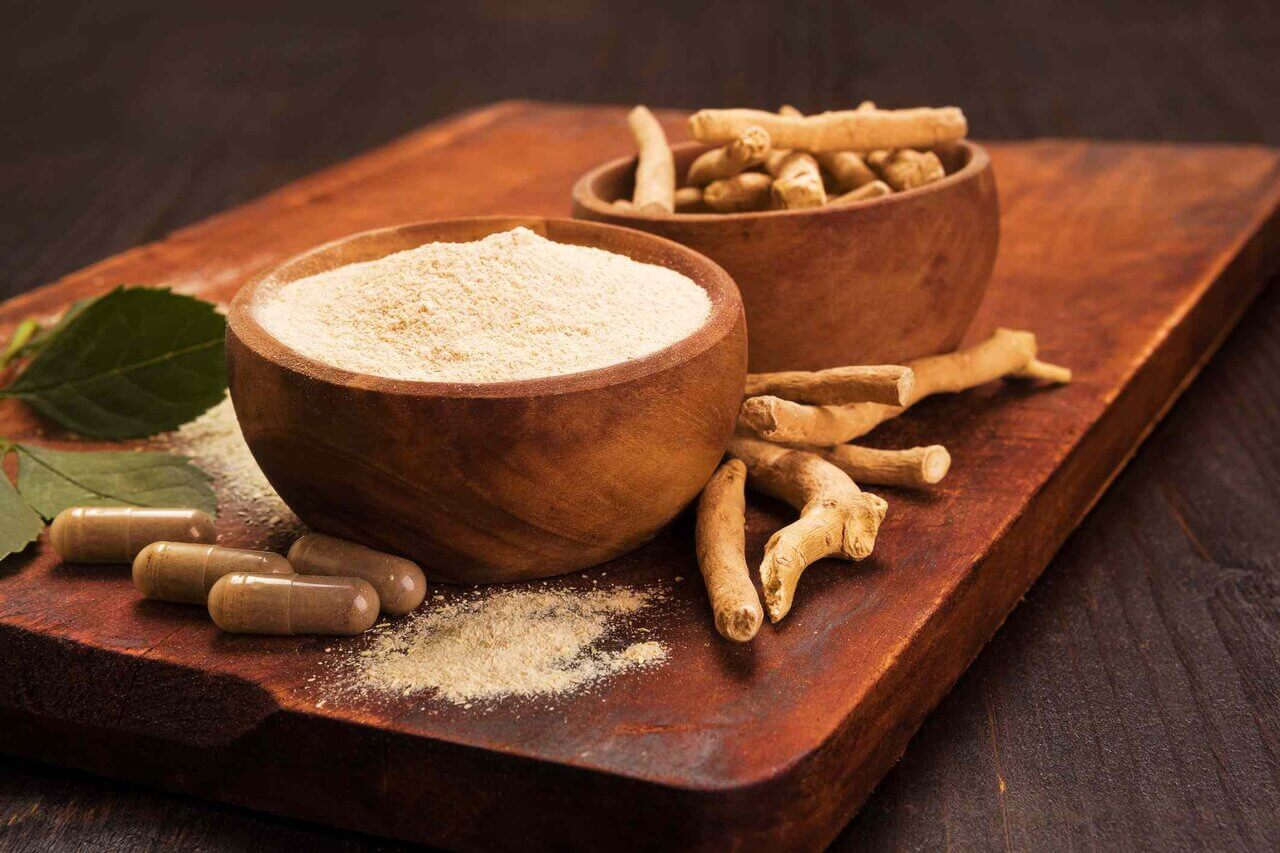Have you ever felt like you’re running on empty, desperately searching for something that could help you feel more balanced, energized, and resilient? You’re not alone. Millions of people are discovering ashwagandha. And for good reason – this ancient herb is showing remarkable promise in modern scientific studies.
Here’s the thing: while wellness trends come and go, ashwagandha has been quietly helping people for over 3,000 years. But only recently have researchers begun to understand why this unassuming root works so well. The results? Pretty impressive.
Let’s dive into what ashwagandha can actually do for you (backed by real science, not just ancient wisdom).
What Exactly Is Ashwagandha? The Quick Overview
Ashwagandha (pronounced “ash-wa-GAHN-da”) literally means “smell of the horse” in Sanskrit. Don’t worry – it doesn’t actually smell that bad! The name refers to the belief that consuming it gives you the strength and vitality of a horse.
This small shrub with yellow flowers grows naturally in India and Southeast Asia. Its scientific name is Withania somnifera. You’ll also hear it called “Indian ginseng” or “winter cherry,” though it’s not actually related to ginseng.
The magic happens in the root, where compounds called withanolides concentrate. Think of these as ashwagandha’s active ingredients – the stuff that makes all the benefits possible.
The 7 Science-Backed Advantages of Ashwagandha
1. Stress Relief That Actually Works
This is where ashwagandha truly shines. Unlike quick-fix solutions that mask stress symptoms, ashwagandha appears to help your body handle stress more effectively at the cellular level.
A 2019 study published in Medicine found that people taking 300mg of ashwagandha twice daily experienced significantly reduced stress levels and improved overall well-being compared to those taking a placebo. Even more impressive? Their cortisol levels (that’s your main stress hormone) dropped by up to 30%.
But here’s what’s really interesting: participants didn’t just feel less stressed – they actually performed better under pressure. That’s the difference between managing stress and conquering it.
Real-world application: Think about those moments when everything feels overwhelming – work deadlines, family responsibilities, financial pressures. Ashwagandha may help you approach these situations with more clarity and less panic.
2. Better Sleep Without the Grogginess
If you’ve ever taken melatonin and woken up feeling like you got hit by a truck, you’ll appreciate this benefit. Ashwagandha helps improve sleep quality without that next-day fog.
A 2020 study in Cureus found that people taking ashwagandha fell asleep faster, stayed asleep longer, and reported feeling more refreshed upon waking. The key difference? It doesn’t knock you out – it helps your body naturally wind down.
The mechanism is fascinating: ashwagandha appears to promote the production of GABA, a neurotransmitter that tells your brain it’s time to relax. It’s like having a gentle conversation with your nervous system rather than forcing it into submission.
3. Enhanced Physical Performance and Strength
Athletes and fitness enthusiasts are catching on to ashwagandha’s performance benefits. And the research is solid.
A comprehensive analysis published in the International Journal of Environmental Research and Public Health reviewed 12 studies on ashwagandha and athletic performance. The results showed consistent improvements in:
- VO2 max (your body’s ability to use oxygen during exercise)
- Muscle strength and mass
- Power output during high-intensity activities
- Recovery time between workouts
One particularly impressive study found that people taking ashwagandha gained significantly more muscle mass and strength during an 8-week resistance training program compared to those taking a placebo.
The bottom line: Whether you’re a weekend warrior or a serious athlete, ashwagandha might help you perform better and recover faster.
4. Cognitive Function and Mental Clarity
Brain fog is real, and it’s frustrating. Ashwagandha may help clear the mental cobwebs.
Research published in the Journal of Dietary Supplements found that people taking ashwagandha showed improvements in:
- Immediate and general memory
- Attention and focus
- Information processing speed
- Executive function (planning and decision-making)
What’s particularly encouraging is that these benefits appeared in both healthy adults and people experiencing mild cognitive difficulties. The researchers believe ashwagandha’s antioxidant properties help protect brain cells from damage while supporting overall neural function.
5. Hormonal Balance and Fertility Support
This is where things get really interesting, especially for men dealing with fertility issues or low energy.
Multiple studies have shown that ashwagandha can:
- Increase testosterone levels by up to 14.7% in some studies
- Improve sperm quality and motility
- Boost DHEA-S levels (a hormone that supports overall vitality)
- Enhance libido and sexual function
For women, preliminary research suggests ashwagandha may help with stress-related hormonal imbalances, though more studies are needed to draw definitive conclusions.
6. Blood Sugar Management
While ashwagandha isn’t a replacement for diabetes medication, it shows promise as a supportive tool for blood sugar management.
A 2020 review of 24 studies found that ashwagandha supplementation was associated with significant reductions in:
- Fasting blood glucose levels
- Hemoglobin A1c (a marker of long-term blood sugar control)
- Insulin resistance
The mechanism appears to involve improved insulin sensitivity – essentially helping your cells better respond to insulin signals.
7. Natural Anti-Inflammatory Effects
Chronic inflammation is linked to almost every major health issue. From heart disease to arthritis to premature aging, keeping inflammation in check is crucial for long-term health.
Ashwagandha contains powerful compounds that help reduce inflammatory markers in the body. A 2021 study found that people taking ashwagandha showed significant reductions in key inflammatory markers like C-reactive protein (CRP) and interleukin-6.
Think of it as a gentle, natural way to help your body maintain better internal balance.
How to Take Ashwagandha: The Practical Guide
Timing matters. Most research suggests taking ashwagandha with meals to improve absorption and reduce potential stomach upset. Some people prefer taking it in the evening since it can promote relaxation, while others take it in the morning for sustained energy.
Dosage Guidelines
| Purpose | Typical Dosage | Best Time to Take |
|---|---|---|
| Stress and anxiety | 300-600mg daily | Morning or evening with food |
| Sleep support | 300-600mg | 1-2 hours before bedtime |
| Athletic performance | 500-1000mg daily | Pre or post-workout |
| General wellness | 250-500mg daily | With breakfast or dinner |
What to Look for When Buying
Not all ashwagandha supplements are created equal. Here’s what to prioritize:
- Standardized extract: Look for products standardized to contain at least 5% withanolides
- Third-party testing: Ensures purity and potency
- Root extract vs. whole plant: Most research uses root extract, which tends to be more concentrated
- Reputable brands: Choose companies with good manufacturing practices
Safety Considerations: Who Should Be Cautious
Ashwagandha is generally well-tolerated, but it’s not right for everyone. You should avoid ashwagandha if you:
- Are pregnant or breastfeeding
- Have autoimmune conditions (like rheumatoid arthritis or lupus)
- Take medications for thyroid disorders
- Are scheduled for surgery within two weeks
- Take sedatives, immunosuppressants, or blood pressure medications
Always consult with a healthcare provider before starting any new supplement, especially if you have existing health conditions or take medications.
Setting Realistic Expectations: When Will You See Results?
Here’s something most articles won’t tell you: ashwagandha isn’t a magic pill. Like most natural supplements, it works gradually.
Based on research timelines, here’s what to expect:
- Stress relief: 2-4 weeks for noticeable improvements
- Sleep quality: 1-2 weeks for initial benefits
- Physical performance: 4-8 weeks for measurable gains
- Hormonal effects: 8-12 weeks for significant changes
The key is consistency. Taking ashwagandha sporadically won’t give you the benefits shown in studies.
Interactive Ashwagandha Dosage Calculator
Find Your Optimal Ashwagandha Dosage
Answer a few questions to get a personalized dosage recommendation based on research:
Common Myths and Misconceptions
Let’s clear up some confusion. There’s a lot of misinformation out there about ashwagandha.
Myth #1: “Ashwagandha works immediately”
Reality: While some people notice subtle effects within a few days, most benefits take weeks to fully develop. Patience is key.
Myth #2: “More is always better”
Reality: Studies show diminishing returns at very high doses, and higher doses increase the risk of side effects. Stick to research-backed amounts.
Myth #3: “All ashwagandha supplements are the same”
Reality: Quality varies dramatically. Extraction methods, standardization, and purity testing make a huge difference in effectiveness.
Myth #4: “It’s completely side-effect free”
Reality: While generally safe, some people experience drowsiness, stomach upset, or interactions with medications. Always start with a lower dose.
Frequently Asked Questions
Can I take ashwagandha with coffee?
Yes, there’s no known interaction between ashwagandha and caffeine. However, if you’re taking ashwagandha for sleep, you might want to avoid caffeine later in the day regardless.
Should I cycle ashwagandha or take it continuously?
Most studies used continuous supplementation for 8-12 weeks. Some practitioners recommend taking occasional breaks, but there’s no strong evidence requiring this for most people.
Can ashwagandha help with weight loss?
Indirectly, yes. By reducing stress-related cortisol and improving sleep quality, ashwagandha may support healthy weight management. However, it’s not a weight loss supplement per se.
Is organic ashwagandha better?
Organic certification ensures the herb was grown without synthetic pesticides, which is generally preferable. However, the extraction and standardization process is more important for effectiveness.
Can I grow ashwagandha at home?
Ashwagandha can be grown in warm climates, but creating an effective extract requires specialized knowledge and equipment. It’s more practical to buy quality supplements.
The Bottom Line: Is Ashwagandha Right for You?
After reviewing hundreds of studies and years of traditional use, ashwagandha stands out as one of the most promising natural supplements available today. The research is robust, the safety profile is good for most people, and the potential benefits are significant.
Here’s what makes ashwagandha special: it doesn’t just address symptoms – it appears to help your body function more optimally across multiple systems. From stress response to physical performance to cognitive function, this herb takes a holistic approach to wellness.
That said, it’s not magic. Ashwagandha works best as part of a healthy lifestyle that includes good nutrition, regular exercise, adequate sleep, and stress management practices.
If you’re dealing with chronic stress, poor sleep, low energy, or simply want to optimize your health naturally, ashwagandha deserves serious consideration. Just remember to start slowly, be patient with the process, and consult with a healthcare provider if you have any concerns.
Your body has incredible healing and adaptive capabilities. Sometimes it just needs the right support to unlock its full potential. For many people, ashwagandha provides exactly that support.
Ready to experience the benefits for yourself? Start with a quality, standardized extract, give it at least 4-6 weeks to work, and pay attention to how you feel. You might be surprised by what this ancient herb can do for your modern life.

